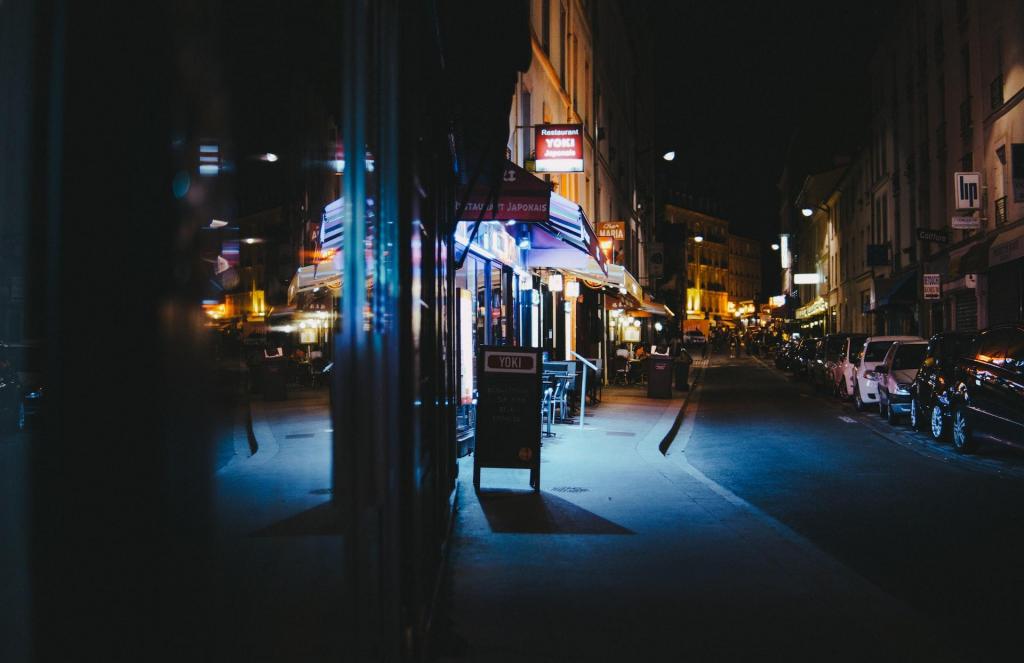Thessaloniki gets ready for its metro launch in November
The underground rapid transit lines have been under construction for almost two decades due to various project delays
 TheMayor.EU logo
TheMayor.EU logo 
Dark streets can be a source of anxiety for many in the small hours of the night , Source: Yannis Papanastasopoulos / Unsplash
The city has partnered up with a hotline, to offer people someone to talk to on their way home
Wiesbaden is one of Germany’s first cities to start tackling the problem of insecurity when walking home late at night. Last week, city officials Foreigners' Advisory Board invited representatives from the Dresden-based Heimwegtelefon association to hold public meetings as well as help with various campaigns in the coming year.
Heimwegtelefon offers a very unique service, covering the whole of Germany. It lets people who are going home and feel afraid call a hotline and connect to a volunteer. The volunteer will stay on the phone with the caller until they make it home safely, or react by calling the police if that becomes necessary.
The biggest contribution from the city in their collaboration with Heimwegtelefon is sponsoring and partnering up with businesses to spread the service to locals. In particular, the catering industry with restaurants and bars will take an active role in popularising Heimwegtelefon.
Wiesbaden’s nightlife is the main source of late-night stays and some bars are opting for stickers and coasters featuring the organisation’s phone number.
Additionally, according to a press statement by the city, having the service around can help people to feel safer. Foreigners' Advisory Board representative Maria Kratz-De Lucch explained that while it is nowhere near the same level of protection as with an escort or driving, having someone with you on the phone can stem a lot of anxiety and give that little bit of assurance if it is needed.
According to a press statement, while the service is not extremely widespread yet, it is gaining popularity. Berenike Schmalfuss, chairwoman of the Heimwegtelefon association was quoted in a press statement, explaining that although women are their primary callers, men also reach out when they feel threatened.
In 2021, the association received around 8,000 calls. 76% of the callers were female, 22% were male and around 2% were diverse. Out of all these, the organisation has had to call the police in just 15 cases, representing 0.2% of calls, which is a very good margin.
Every phone call starts with callers giving the volunteers their names and whereabouts, so the organisation can hand them to the police if there is an emergency. However, Schmalfuss also pointed out that there are many situations in which people, apart from acute emergencies, need someone to accompany them on the phone.

The underground rapid transit lines have been under construction for almost two decades due to various project delays

Now you can get your wine in Talence by paying directly in Bitcoin

That’s because the state has to spend money on updating the railway infrastructure rather than subsidizing the cost of the popular pass

Rethinking renewable energy sources for the urban landscape

The examples, compiled by Beyond Fossil Fuels, can inform and inspire communities and entrepreneurs that still feel trepidation at the prospect of energy transition

Now you can get your wine in Talence by paying directly in Bitcoin

The 10th European Conference on Sustainable Cities and Towns (ESCT) sets the stage for stronger cooperation between the EU, national and local level to fast track Europe's transition to climate neutrality.

At least, that’s the promise made by the mayor of Paris, Anne Hidalgo

The underground rapid transit lines have been under construction for almost two decades due to various project delays

At least, that’s the promise made by the mayor of Paris, Anne Hidalgo

Hostal de Pinós is located in the geographical centre of the autonomous region

Despite its church-y name, the district has long been known as the hangout spot for the artsy crowds

Urban dwellers across the EU are having a say in making their surroundings friendlier to people and the environment.

Forests in the EU can help green the European construction industry and bolster a continent-wide push for architectural improvements.

Apply by 10 November and do your part for the transformation of European public spaces

An interview with the Mayor of a Polish city that seeks to reinvent itself

An interview with the newly elected ICLEI President and Mayor of Malmö

A conversation with the Mayor of Lisbon about the spirit and dimensions of innovation present in the Portuguese capital














